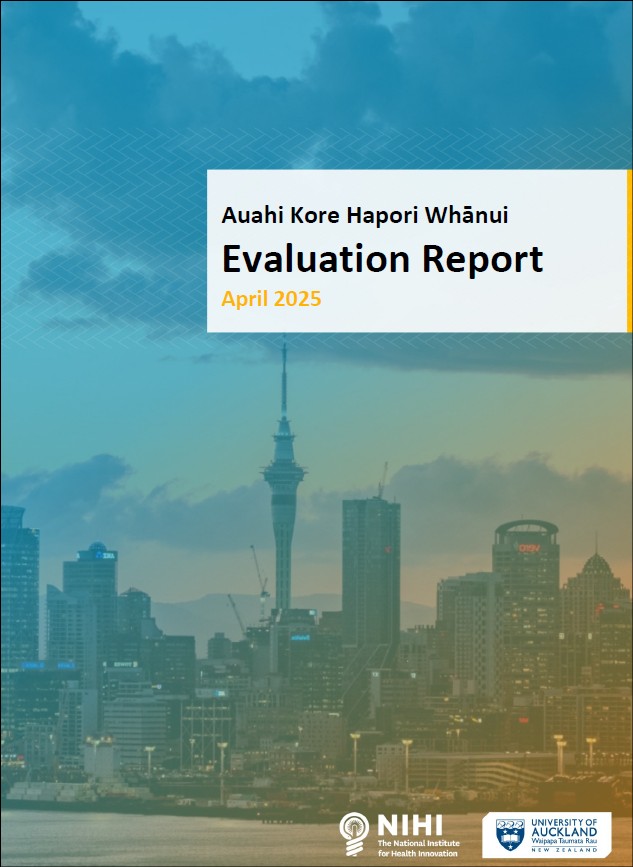Auahi Kore Hapori Whānui smoking cessation programme evaluation report
Author:
Karen Bissell, Chris BullenSource:
Auckland Council | University of Auckland, National Institute for Health Innovation NIHIPublication date:
2025Topics:
PeopleOverview
This report provides an independent evaluation of Auckland Council’s Auahi Kore Hapori Whānui smoking cessation programme that ran from 2019 to 2023. The programme was run in collaboration with Hāpai Te Hauora, various Stop Smoking Service providers and other key organisations, community groups and individuals from across Tāmaki Makaurau.
The report found that the “group-based, locally led, culturally responsive interventions used in the quit programme were remarkably effective, at least in the short term, and have potential to deliver better results than the standard approach”.
From the Executive summary
Background
This report presents findings from the evaluation of a smokefree initiative, Auahi Kore Hapori Whānui (Action for Smokefree Communities), one component of the Auckland Council Smokefree 2017-2025 Implementation Plan. Auahi Kore Hapori Whānui was developed and implemented between 2019 and 2023 in collaboration with Hāpai Te Hauora, various Stop Smoking Service providers and other key organisations, community groups and individuals from across Tāmaki Makaurau. The evaluation was commissioned by the Auckland Council and undertaken by researchers at the University of Auckland.
Evaluation Aim
To assess the effectiveness, relevance and community engagement of Auahi Kore Hapori Whānui in delivering smokefree activities that respond to the needs and values of Māori and Pacific communities, and Auckland Council, and to identify key lessons learned to guide future efforts.
Evaluation Objectives
- To create a record of Auahi Kore Hapori Whānui, describing the approach taken, the partnership involved, and the activities achieved.
- To examine ethnic-specific smoking and vaping data, geographic patterns of smoking and vaping, and Stop Smoking Service data; assess any potential impacts of Auahi Kore Hapori Whānui; and highlight what progress is still needed to achieve Smokefree 2025.
- To assess the extent to which Auahi Kore Hapori Whānui delivered smokefree events and group quit programmes that were culturally responsive to community needs and values and co-created with local communities.
- To assess the extent to which Auahi Kore Hapori Whānui delivered for the Auckland Council on the values expressed in the Auahi Kore Hapori Whānui Action Plan
- To identify key features for success and lessons learned.
Evaluation Approach
The evaluation approach was primarily utilisation-focused, with an emphasis on producing practical and actionable findings for the needs of the intended users. It was also informed by the principles of culturally responsive evaluation, which assert the importance of cultural contexts, values and perspectives in all aspects of an evaluation.
The Auahi Kore Hapori Whānui Action Plan contained a programme logic and a matrix with enablers and activities (see Figures 1 and 2) but with COVID-19-related disruption, it became clear that it was inappropriate to evaluate against the complete programme logic as some of the planned activities had become unfeasible. Evaluative criteria were developed to judge what success would look like for the Auckland Council and for communities. Community needs and values were derived from a) an earlier project undertaken for Auckland Council, in which Hāpai conducted community voice sessions with Māori and Pacific people who smoke and their whānau, and b) focus groups conducted by the Auahi Kore Hapori Whānui activation team. ...
Auckland Council, April 2025
